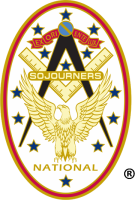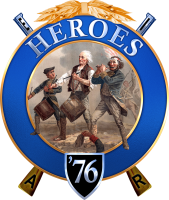Heroes of ’76®
About …
The Heroes of ’76® is an affiliated auxiliary organization of National Sojourners®, Inc. which functions under the authority of, and in accordance with, the National Constitution and By-Laws of the National Sojourners. It is composed of National Sojourners who have, in recognition of exemplary service to National Sojourners, Freemasonry, or our National Government, received this inspiring patriotic Degree.
A Camp is the basic organization in the Heroes of ’76. It is an organization composed of three or more Heroes, established by authority of, and with a proper Charter from the office of the National Commander, bearing an approved name and is sponsored by a Chapter (which shall be responsible for its proper functioning). It is staffed for the purpose of accomplishing its chief function – to conduct Bivouacs (meetings), initiate qualified Recruits by exemplification of a Degree, and perform at patriotic events in colonial attire.
A Short History …
About 1876, Brother E. B. Jones, a Past Grand Master of the Grand Lodge of Kentucky, composed a ritual for a side Degree and called it the “Heroes of 76.” Its innocent and enjoyable nature made it most popular with the Craft. A notice in the newspapers announcing a meeting of Heroes after the close of the Lodge always brought out a large attendance.
During the lifetime of Brother Jones, no one conferred the Degree but himself. Before his death, he gave a copy of the ritual to Brother Thomas J. Flournoy, a Past Grand Commander of the Grand Commandery of Knights Templar of Kentucky. After Brother Jones’ death, many craftsmen insisted that Brother Flournoy revive the Degree. This Brother Flournoy did, conferring the Degree upon selected Masons of many states.
Brother Flournoy passed to the Great Beyond at Rockmart, Georgia, on September 5, 1925. Sometime before his death, he gave a copy of the ritual to Brother Colonel Christopher Van Deventer, his nephew, with authority to confer the Degree upon selected Masons.
Brother Van Deventer, an active Sojourner, considered that the National Sojourners was the logical organization for the custodianship of the ritual as it is most appropriate to our membership. The Degree was therefore instituted in Chicago Chapter in July 1922 and the first Camp organized there. In June 1923, George Washington Camp was instituted by Brother Van Deventer and several Heroes from Chicago.
Since that time, Camps have been organized in nearly all of the Chapters of National Sojourners and form an enjoyable part of the Chapter activities. The Degree has never been commercialized and its founders never intended that it should have any other purpose than to give enjoyment and innocent pleasure to Brother Masons and Sojourners. It has never had any initiation fee or dues. To receive and retain the Degree you must be a Master Mason and a Sojourner in good standing.
Refer to the work Heroes of ’76: History of the Order by Clarence M. Nelson, Captain, U.S. Marine Corps, Retired National Historian, for a more detailed history of the order.
The Founders of the Heroes of ’76
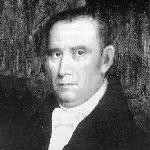
Brother Caleb Atwater
On Thursday, September 15, 2022, our National Commander, Brother Randolph Geck, accompanied by our National Den Mother, Carol Geck, presided over a Centennial Founders Memorial Ceremony in Circleville, Ohio, honoring Brother Caleb Atwater, one of the founders of our Order. Brother Geck was assisted by Brother Carl Diamond, Past National Commander and currently the 1 st Vice President of National Sojourners, as they placed a Centennial Heroes of ’76 wreath beside Brother Atwater’s grave marker.
Brother Caleb Atwater was raised in Pickaway Lodge #23, Circleville, Ohio on October 7th, 1820. His writing talents, his devotion to Freemasonry, and his interest in American history were combined when he wrote an essay entitled “The Patriot Masons of our Country.” Brother Atwater delivered this material as part of an oration at his Lodge in Circleville, Ohio on June 25th, 1821. His essay was subsequently published in a book entitled “MASONIC MISCELLANY Vol I”, 1821-2, and later published in a presentation book entitled “THE EMBLEM”. In his essay, Brother Atwater eloquently describes the contributions made by famed Freemasons who were founders of our nation.
We consider Brother Atwater one of the founders of our order. Brother E.B. Jones, who composed the Heroes of ’76 Degree in 1875, used much of the beautiful writing of Brother Atwater’s patriotic, tributary essay within the Degree.
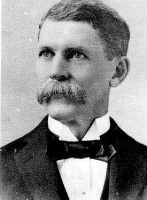
Brother Thomas Jefferson Flournoy, Jr.
Brother Thomas J. Flournoy, Jr. was born August 7, 1842, and died September 5, 1925. Very little has been discovered concerning Brother Flournoy’s life beyond the dates of his birth and death, because in 1937, a fire destroyed all of the stored records of the Masonic Temple in Paducah, Kentucky. It is known that he was a member of the Paducah Commandery #11 and that he was Grand Commander of the Grand Commandery of Kentucky from 1893 to 1894. The historical account left to us informs us that before his death, Edward Beach Jones gave a copy of the Heroes ritual to Brother Flournoy. This was not a capricious act, as Brother Flournoy was an accomplished ritualist and had the Masonic stature and ritualistic capability to carry the degree forward as Brother Jones had intended.
Brother Flournoy proceeded to spread the degree by moving it out of Kentucky and conferring it on selected Masons from many states including Tennessee, Illinois, Iowa, and Georgia. It also seems obvious that both Jones and Flournoy considered the degree essential to preserving the memory of the gallant Masons who founded this Nation rather than simply as a reward for meritorious service to Masonry. Sometime before Brother Flournoy passed away, he gave a copy of the ritual to his nephew, Brother Christopher Van Deventer.
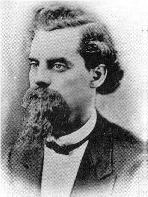
Most Worshipful Brother Edward Beach Jones
Most Worshipful Brother Edward Beach Jones was born near the city of Petersburg, in Brunswick County, Virginia on April 11, 1832, and passed away on August 2, 1894. Early in his life, Brother Jones entered the mercantile business specializing in clothing and gentlemen’s furnishings and he remained engaged in that business throughout the Civil War. In 1868, he was elected Circuit Court Clerk of McCracken County. In 1874, he returned to the mercantile business and later became Deputy Postmaster, and in 1892, at the age of 60, he was re-elected to the office of Circuit Court Clerk, and he was serving in this office at the time of his death.
Brother Jones was made a Mason in Paducah Lodge #127 on Christmas Day in 1854. In 1867, he was elected Grand Junior Warden of the Grand Lodge of the State of Kentucky, and in 1871, he became Grand Master of the Grand Lodge of the State of Kentucky. Brother Jones also belonged to all of the York Rite Bodies and served as Grand High Priest of Royal Arch Masons in Kentucky from 1869 to 1870.
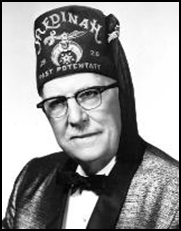
Brother Christopher Van Deventer
Brother Colonel Christopher Van Deventer was born in Clinton, IA, on 1 July 1874. He grew up in Tennessee and was educated at the University of Tennessee, Columbia University, and the University of Michigan, achieving a Masters Degree in Engineering. He worked as an engineer at Stanley Electric Company, the predecessor of General Electric Corp. where he pioneered hydroelectric power on the Tennessee waterways and worked to bring high-tension electricity to San Francisco. In 1906, he established the Van Deventer engineering consulting firm in Chicago. During WWI, he was Director of Operations and Personnel for the Chief of Engineers in the American Expeditionary Forces in France, where he attended the meeting which organized the American Legion and later founded the Castle Post of the American Legion in Chicago. During the war, he earned the Purple Heart (USA) and the officier d’Academie (France). Brother Van Deventer was President of the Adventurers Club, leading Federal and State participation for the 1933-34 World’s Fair. He was also President of the Chicago Post of American Military Engineers, and was a Museum of Science and Industry (Chicago) representative.
Brother Van Deventer was raised as a Master Mason in 1905 in Woodlawn Park Lodge #789 (Illinois). He was a member of La Fayette Chapter #2, Royal Arch Masons; Palestine Council #66, Royal & Select Masons; and Apollo Commandery #1, Knights Templar, being Eminent Commander in 1912. He was coronetted as a Scottish Rite 33° Inspector General Honorary in 1912; was Most Wise Master of Gourgas Chapter, Rose Croix, in 1920; Minister of State and Orator, Oriental Consistory, in 1927; and Grand Sovereign, Red Cross of Constantine in 1927. He was Chief Rabban of Medinah Temple during WWI, and was installed as Illustrious Potentate in 1920 on his return.
Brother Christopher Van Deventer, was President of Chicago Chapter, National Sojourners, in 1922-23. At the National level, he was National 1st Vice President (1924-27), the Father of the Heroes of ’76 (1922-26), elected National Commander (1926-30), and elected National Commander Emeritus (1930-64). He was undoubtedly the most important person in the history of the Heroes of ‘76 and one of the most important in the history of National Sojourners. Although many hands and minds are associated with Heroes of ’76 development, Brother Van Deventer’s contributions and efforts far exceed those of anyone else. Without him, the degree would never have come to National Sojourners, and would not have achieved the importance in Freemasonry and in National Sojourners that it has.
In 1922, Brother Van Deventer realized that the Heroes of ’76 Degree, a one-man show for the previous 50 years, might provide the “shot-in-the-arm” that National Sojourners sorely needed. Brother Van Deventer coined the term “Camp,” and organized the first Camp (Bon Homme Richard) in Chicago Chapter in 1922. In 1923, he and several Heroes from Chicago organized George Washington Camp in Washington Chapter #3. Camps were subsequently formed in most Chapters of National Sojourners.
Brother Van Deventer’s belief that Heroes of ‘76 would stimulate Sojourners has proven true well beyond his vision. He instituted a military organizational structure, gave the officers military titles, and called meetings “bivouacs,” and candidates “recruits,” who were “mustered in,” vice initiated. Instead of one man conferring the degree on a class of recruits, a group of men conferred the degree upon one recruit. Brother Van Deventer carefully retained the original degree as he received it and became the driving force behind forming a National Heroes of ’76 organization, similar to National Sojourners, to preserve the original degree and its landmarks.
Brother Christopher Van Deventer died on 23 February 1964 at Rockford, Tennessee and he is buried in the family plot in Knoxville, Tennessee at Old Gray Cemetery. The March-April 1964 issue of The Sojourner reported, “Colonel Van Deventer was, without question, one of the greatest men, Masons, and Sojourners who ever lived. His kindliness and wise counsel served well in the early days of the organization of National Sojourners, and his gift of the Heroes of ‘76 did much to expand its membership.” To honor Brother Van Deventer for his hard work and contribution to both National Sojourners and the Heroes of ‘76, in 1963, he became the second recipient of the National Sojourners Legion of Honor Medal, the highest honor bestowed upon members of National Sojourners. The Van Deventer Award, the highest honor bestowed upon members of the Heroes of ’76, is named in tribute to Brother Colonel Christopher Van Deventer.
